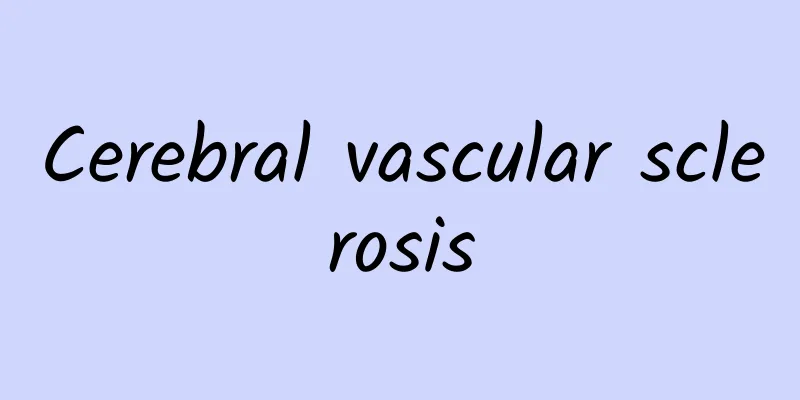Can sensorineural hearing loss be cured?

|
Deafness is a neurological disease that can be divided into congenital and acquired. Many people are born with deafness due to family inheritance. It may also be caused by acquired factors, which can be cured. Acquired deafness mostly occurs in the elderly. As human organs gradually age, deafness and dizziness will occur. This is a natural factor. It is also possible that one hears very strong noise and thus causes deafness. Therefore, we must take relevant precautions in our lives. Causes: Any structural or functional disorder in the sound transmission, perception, or analysis and synthesis parts of the human auditory system can manifest as varying degrees of hearing loss, ranging from mild hearing loss to severe deafness. Hearing loss caused by damage to the spiral hair cells, auditory nerves, auditory conduction pathways or neurons at all levels, which leads to disorders in sound perception and nerve impulse transmission, is clinically referred to as sensorineural hearing loss. It is mainly caused by two conditions: congenital and acquired. Various acute infectious diseases, bacterial or viral infections, such as epidemic encephalitis B, mumps, purulent meningitis, measles, scarlet fever, influenza, herpes zoster oticus, typhoid fever, etc. can damage the inner ear and cause sensorineural hearing loss of varying degrees. It is more common in aminoglycoside antibiotics, such as gentamicin, kanamycin, polymyxin, dihydrostreptomycin, neomycin, etc. Other drugs such as quinine, salicylic acid, cisplatin, etc. can cause sensorineural hearing loss. Ear drug poisoning is closely related to the body's susceptibility. Drug-induced deafness is bilateral, often accompanied by tinnitus, and vestibular function may also be impaired. Presbycusis is mostly caused by vascular sclerosis and bone hyperplasia in the elderly, which leads to insufficient blood supply to the spiral hair cells and spiral ganglia, degenerative lesions, or decline of the central nervous system, resulting in hearing loss. Clinical manifestations: 1. Congenital deafness Refers to hearing impairment that is present at birth or shortly after birth. 2. Hereditary deafness Refers to sensorineural hearing loss caused by gene or chromosomal abnormalities. 3. Non-hereditary deafness The mother suffers from viral infectious diseases such as rubella, mumps, influenza, etc. in early pregnancy. 4. Presbycusis It is the manifestation of the human aging process in the auditory organs. Its main characteristics are bilateral symmetrical deafness that progresses slowly from high frequency to speech frequency, which may be accompanied by high-frequency tinnitus, and the speech recognition rate is disproportionate to pure tone audiometry. 5. Deafness caused by infectious diseases Refers to sensorineural hearing loss caused or complicated by various acute or chronic infectious diseases. The main ones are epidemic cerebrospinal meningitis, scarlet fever, diphtheria, mumps, etc. 6. Deafness caused by systemic diseases The most common ones are hypertension and arteriosclerosis. These diseases cause blood supply obstruction to the inner ear, increased blood viscosity, and disorders in inner ear lipid metabolism, leading to hearing changes. Others include diabetes, nephritis, hypothyroidism, leukemia, etc. 7. Ototoxic deafness Refers to deafness caused by accidental ingestion of certain drugs or long-term exposure to certain chemicals. The incidence rate has increased in recent years. Common drugs include streptomycin, kanamycin, gentamicin, etc. These drugs first damage the vascular striae of the inner ear when they enter the inner ear, destroy the blood-labyrinth barrier, and then damage the endolymphatic sac. The auditory and vestibular sensory cells undergo degenerative changes, resulting in hearing loss. The deafness is bilaterally symmetrical, and mostly develops from high frequencies to medium and low frequencies. Treatment: Treatment strategy At present, while excluding or treating the causative diseases, it is advisable to use vasodilators and drugs that reduce blood viscosity for treatment as early as possible. Severe cases require hearing aids or cochlear implants. Drug treatment Drugs such as glucocorticoids, B vitamins, energy mixtures, etc. can be used, and antiviral and antibacterial drugs can be used when necessary. Surgery Cochlear implant placement. Other treatments Hyperbaric oxygen chamber treatment and hearing aid correction. Daily care 1. Do not use drugs that are toxic to the ears. 2. Avoid external injuries and noise damage to the ears. 3. Be careful to prevent water from entering your ears. Diet Reduce fat intake, eat more foods rich in iron or zinc, quit smoking and limit alcohol consumption. |
<<: How to eliminate neurological tinnitus
>>: Notes on sensorineural hearing loss
Recommend
Eucommia pictures and effects
In our daily life, Eucommia ulmoides is a common ...
What is Rubella Virus?
As the industrialization process continues to acc...
What are the early symptoms of cerebral edema?
Cerebral edema is an increasingly common disease,...
What are the remedies for babies catching cold?
For young children, their bodies are usually not ...
How should women take better care of their ovaries?
The ovaries are very important to a woman's b...
What is the principle of hangover medicine?
Do you have some friends around you who get drunk...
What are the causes of dry skin and what causes it?
We know that the skin is our body’s first line of...
Is vinegar useful for mouth ulcers?
There are many treatments for oral ulcers, and ma...
The best medicine to protect gastric mucosa
Gastric mucosa is a very important substance in o...
Depression Tests
Depression is a very common disease. Now many off...
Newborn baby does not open his eyes
When a baby is born, the way their eyes open vari...
Fried watermelon recipe
Many people have not heard of fried watermelon. W...
Can I smoke after getting hyaluronic acid injection in my nose?
Hyaluronic acid injection is a common plastic sur...
Early symptoms of blood diseases in children
Blood disease in children is a relatively common ...
What to do if your child has wheezing when he catches a cold
Children are more likely to catch a cold when the...









